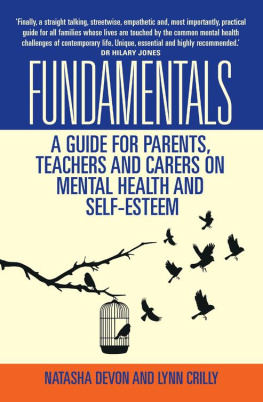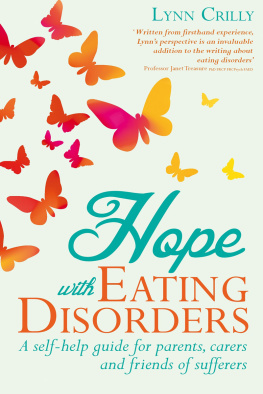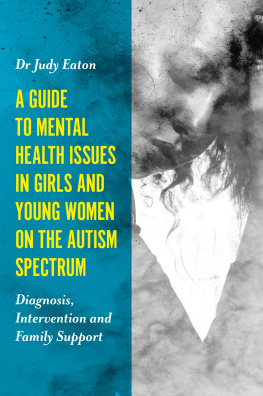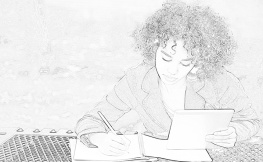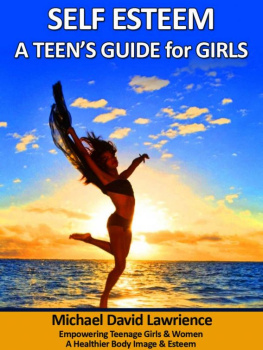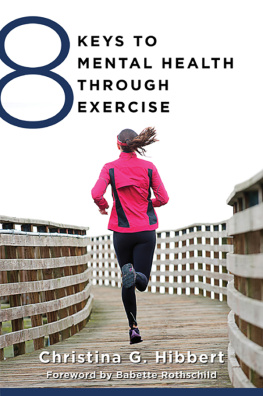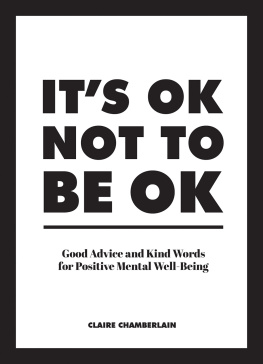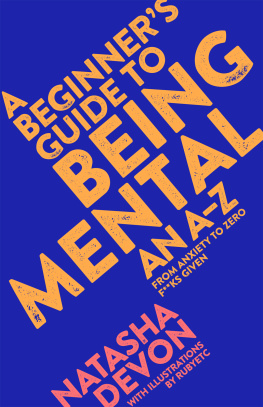Good mental health is the foundation of everything in life. This book will give teachers, parents and extended family the tools they need to ensure they can provide young people with that vital foundation.
This is an important and insightful book for anyone who has battled with low self-esteem or struggled to make peace with their own reflection. Natashas compassion and dedication to challenging low self-esteem and body confidence in young people make her an excellent educator. She inspires self-belief and empowerment through knowledge. This book will help you do the same.
Natasha is sassy, funny and delivers her message with a refreshing dose of no-nonsense, kick-ass honesty.
So easy to read, like having a chat with someone who truly understands the devastation eating disorders have on the whole family, not just the person suffering with it. It provides reassurance, clear information and advice.
What really shines through is the love of a mother, over and above being an author, therapist and business woman. Lynn is a loving mum, and that alone I think trumps all the clever science in the world Read it. Heed it.
Dedicated to Jess, my star student.
Your creativity, kindness and individuality continue to inspire me long after my lesson inspired you to conquer your demons.
Natasha
O n a chilly November evening about five years ago, I was walking along the main road which led from Liverpool Street station to my then-home in East London. A man with a friendly face walking in the opposite direction said Excuse me? and despite the cold, darkness and everything my mother has told me about not talking to strangers, something made me stop and say Yes?.
I just wanted to tell you that you look lovely, he said. I thanked him, he turned on his heel and walked away. The entire exchange must have delayed me by about ten seconds.
As I continued marching home, suddenly a firework shot out of a side street, directly across my path. If I had been on my original trajectory and not had that brief conversation with the stranger, the firework would have hit me.
Ive come to see that experience as a metaphor for my job. If I can convince young people just to pause briefly in the darkness to consider what I tell them, then perhaps I might prevent them from being damaged by some of the things that life will throw at them (whilst also giving them the message that they look lovely).
If my role is that of the stranger who delivers a positive message on lifes journey, then parents, carers and teachers are the constant companions guiding young people along the path.
In our complex and often toxic culture, theres so much pressure for the adults who are guiding young people to be perfect. There are a gazillion conflicting messages being fired at you from all angles and most are placing every conceivable blame squarely at your door. The world will find infinite ways to tell you that you arent good enough, if you give it even an iota of a chance.
The truth is no one gets it right a hundred per cent of the time. No matter how comprehensively you try and cater to your young charges needs, there will be some things that you cannot control, some lessons they need to learn on their own and theyll inevitably emerge from their coming-of-age a tiny bit fucked-up (because being a tiny bit fucked-up is actually a crucial part of being a human being).
This book is all about the things you can do. Most of the changes wed encourage you to make are simple and easy to implement, yet theyll dramatically transform the culture of your home, your school and most importantly, your mind. By tweaking the language that we use and examining the way we understand and communicate about self-esteem and mental illness, we can help build the armour young people need to navigate their lives happily and healthily.
According to a study, in an average British classroom in 2011 three students were self-harming. Eating disorders will be experienced by one in ten young people before they reach the age of twenty-five. Suicide is the biggest killer of men and boys under twenty-one in the UK. Ten percent of the British population currently meet the diagnostic criteria for mixed depression and anxiety disorder.
I could go on but I wont because, ironically, to do so would be too depressing. For whilst my work delivering self-esteem classes to teenagers over the past eight years has, sadly, completely borne out the above statistics, it has also taught me to hope. Our young people are brilliant. If youre a parent reading this, thanks so much for making them they are a pleasure to interact with every day.
Children and teenagers have an ability to adapt and the flexibility to allow themselves to think in unfamiliar ways, making them the proverbial leopards who CAN in fact change their spots. They have an optimism and enthusiasm for life which you can really only have when you have not yet experienced a grey pubic hair or had to pay your own Council Tax. They have been more sensitive, more emotionally intelligent and more insightful than I could ever have anticipated.
In my experience, all most young folk need is a little guidance, a bit of clarity, reassurance that theyre valued, a safe environment to express how they feel and a couple of really good role models. This book aims to give you the information and tools you need to provide those things.
Natasha Devon
T his book is somewhat unusual, in that it is a collaboration between two authors, Natasha Devon and Lynn Crilly. Well make sure there is an indicator above each section so you know who is speaking when. We should be easy to distinguish, just look for the swearing (thats Natasha) and Lynns sections appear in italics like this.
As a very broad guide, Lynns advice is aimed mostly at parents and carers, focusing on the home environment and Natashas at teachers and on educational environments. Theres a lot of cross-over, though, so wed suggest you read everything. It seems a shame not to, after youve bought the book and everything.
We hope that, between the two of us, we have a comprehensive understanding of our subject matter. Here is a little about each of us:
Lynn
Ten years ago, I was a housewife and ran the office side of our family scaffolding business. I was constantly trying to find a work/life balance, but no more than any other working Mum. Approaching forty, I had a wonderful happy life with my husband Kevin and our beautiful twin daughters Charlotte and Samantha. Of course, like everyone, life threw challenges our way, but we always worked together to overcome them and move forward.
From the outside looking in, people used to think we had a perfect existence. So, when in 2004 our Samantha was diagnosed with the early stages of anorexia nervosa our world fell apart. I had no idea how to deal with eating disorders back then, but my husband and I believed if we entrusted Sams health to the system she would get better we had no reason to think otherwise at this point.
We tried everything to help Sam, taking her to our local GP (who was wonderfully supportive) and to both private and NHS clinics, but sadly nothing was working. I felt completely helpless watching our beautiful daughter become a shadow of her former self.
At the end of my tether and with my family falling apart I decided that there was no substitute for a mothers intuition and love. I took the decision to rehabilitate Sam myself with the support of our GP, friends and family. It was the steepest learning curve I could ever have anticipated. Looking back, it was quite a controversial thing to do, I suppose, but at the time my instinct told me it was the right way to get my little girl better.

